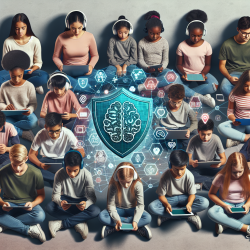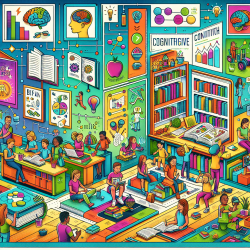Introduction
The COVID-19 pandemic has been a catalyst for change across various sectors, including healthcare and education. In the realm of simulation-based learning, the pandemic has highlighted both challenges and opportunities for practitioners. The research article "Sidelined during COVID-19: a narrative inquiry into how simulationists experienced the pandemic" offers valuable insights into how simulationists navigated this unprecedented time. By understanding their experiences, practitioners can enhance their skills and contribute to improved outcomes for children and other learners.
Understanding the Challenges
The study revealed that simulationists faced significant challenges during the pandemic, including feelings of guilt, frustration, and isolation. Many felt sidelined, unable to contribute directly to frontline patient care. This sense of being "unused" and "underappreciated" was prevalent, as simulation centers were often closed or seen as non-essential. These challenges underscore the importance of mental health support for all healthcare professionals, not just those on the frontlines.
Turning Challenges into Opportunities
Despite these challenges, the research highlighted numerous opportunities for growth and innovation. Simulationists demonstrated leadership by evolving and innovating within their roles. They developed new educational strategies and adapted to virtual platforms, ensuring continuity in training and education. This adaptability is a testament to the resilience and creativity of simulationists during a crisis.
Practical Implications for Practitioners
For practitioners in speech-language pathology and related fields, the findings of this study offer several actionable insights:
- Embrace Innovation: Use technology to enhance learning experiences. Virtual simulations and online platforms can provide effective alternatives to traditional methods.
- Foster Collaboration: Work closely with colleagues across disciplines to share resources and strategies. This collaboration can lead to more comprehensive and effective educational programs.
- Prioritize Mental Health: Ensure that mental health resources are available for all team members. Acknowledge the emotional impact of being sidelined and provide support where needed.
- Encourage Continuous Learning: Use this period as an opportunity for personal and professional development. Engage in workshops, webinars, and other learning opportunities to enhance skills and knowledge.
Conclusion
The experiences of simulationists during the COVID-19 pandemic offer valuable lessons for practitioners in speech-language pathology and beyond. By recognizing the challenges and embracing the opportunities for innovation and growth, practitioners can improve outcomes for children and other learners. This research serves as a reminder of the resilience and adaptability of educators and healthcare professionals in the face of adversity.
To read the original research paper, please follow this link: Sidelined during COVID-19: a narrative inquiry into how simulationists experienced the pandemic.










